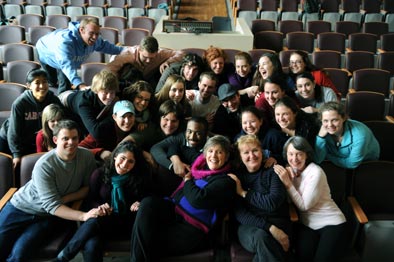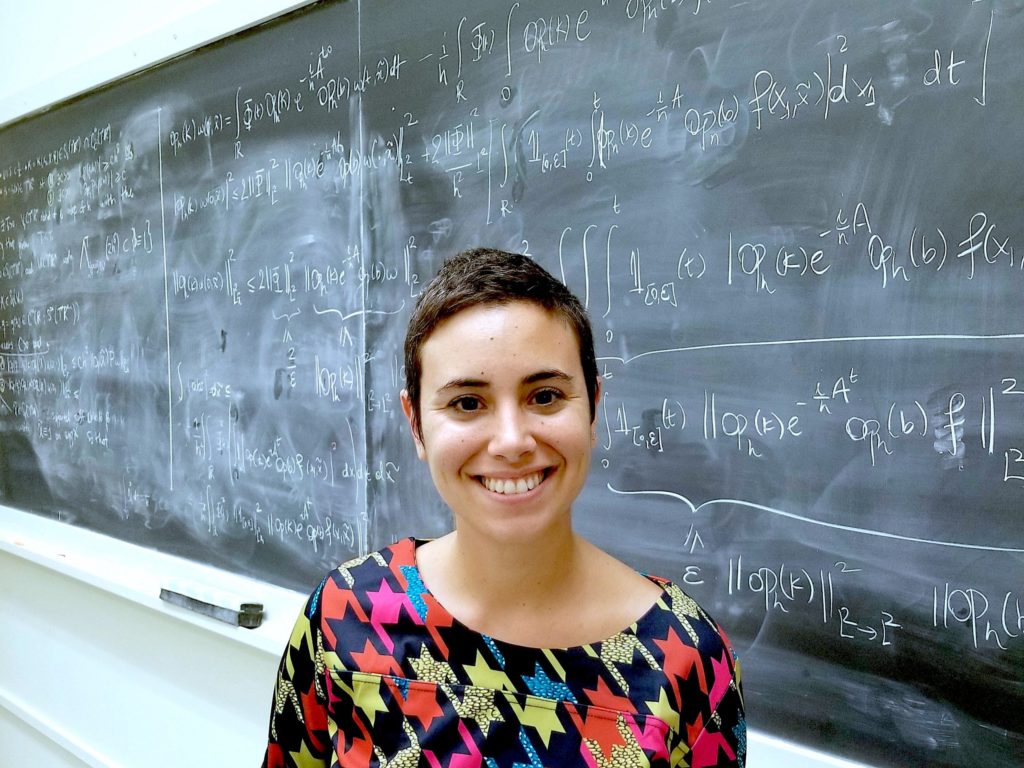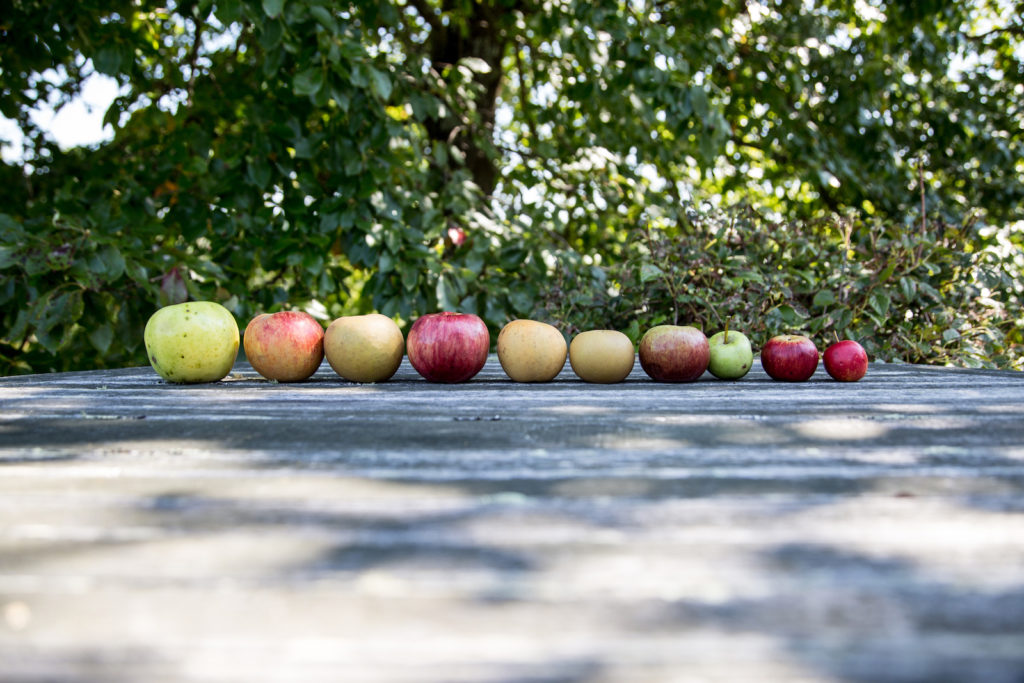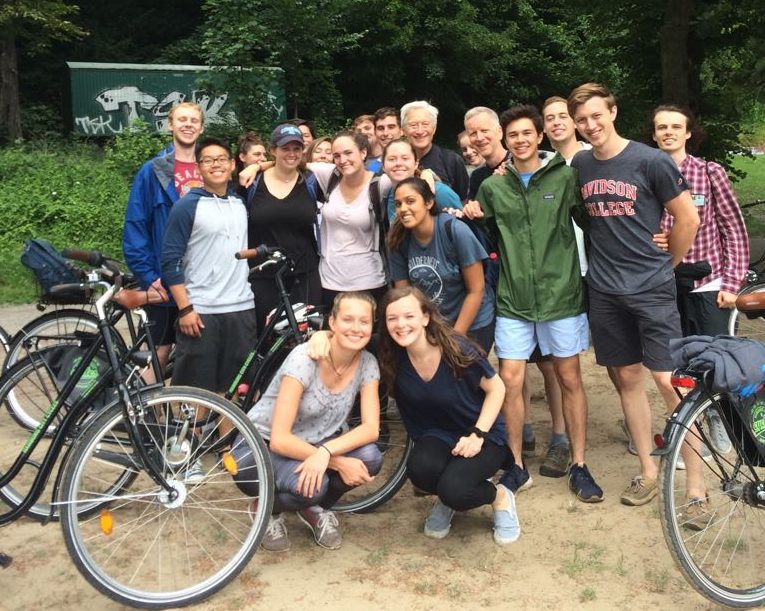
Twenty-five UNC-Chapel Hill students spent six weeks this summer navigating Germany, Spain and Denmark—and never set foot in a car.
“I wanted them to experience what it was like to be able to walk out your door and either walk, bike or take a bus or train to a destination, easily,” said David Salvesen, a co-faculty director for the Burch field research seminar titled “Moving Toward A Low-Carbon Future: Sustainability and Storytelling” administered by Honors Carolina in the College of Arts and Sciences. “One of the highlights, for me, was just seeing students experience that kind of lifestyle—to see it as possible. In fact, it can actually enrich their lives to be able to be immersed in that kind of place.”

Salvesen, who also is the director of the Sustainable Triangle Field Site and a research associate in the UNC Institute for the Environment, is referring to the itinerary of cities the students visited to learn about and report on how these cities are leaders in reducing their carbon footprints. Cities such as Berlin, Hamburg and Freiburg in Germany, Sarriguren, Spain and Copenhagen, Denmark are ambitiously leading the world in renewable energy and sustainability practices in their own ways.
Through field trips, interactions with local citizens and experts, students learned about the political, social and economic factors driving these cities’ transition from fossil fuels to a completely renewable energy future. While learning about sustainability, students also learned how to tell journalistic stories via audio, video, photography and print through a companion course taught by School of Media and Journalism Distinguished Professor Tom Linden, who co-directed this Burch field research seminar.
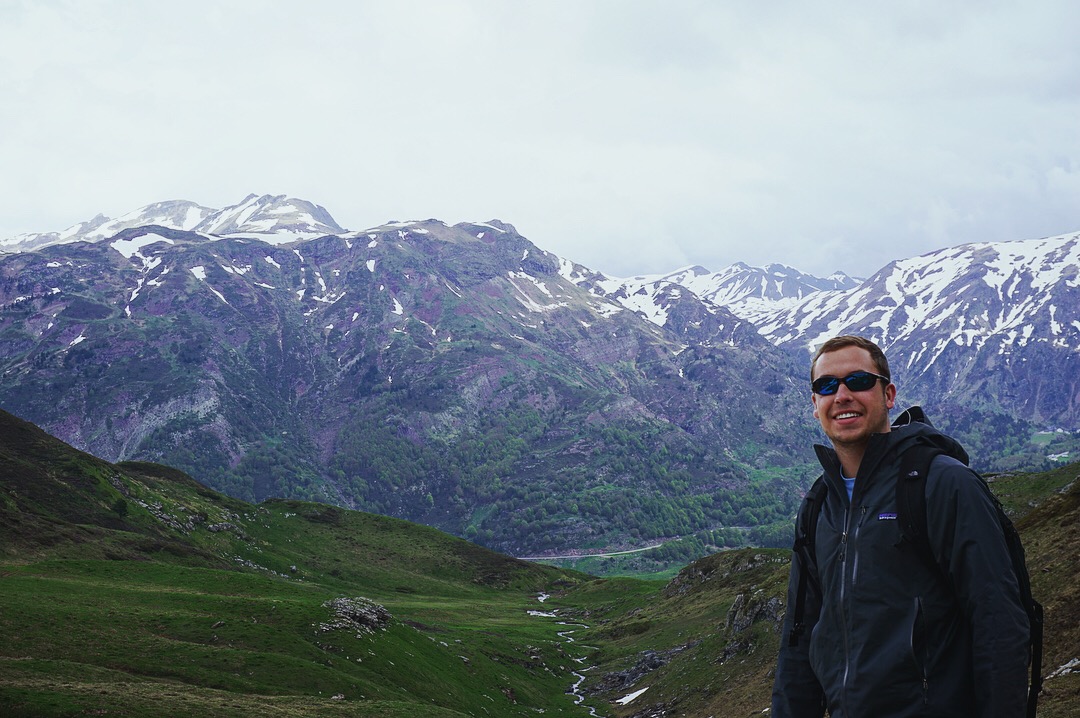
“The biggest take-away from the study abroad opportunity for me was learning about ways to incentivize and encourage sustainability and energy efficiency,” said Ryan Eskew ’20, an environmental science major who participated in the summer seminar. “Oftentimes in our contemporary society, the most sustainable and efficient way to power a home, get around town, or dispose of waste is not always the cheapest or most convenient option. Through this experience we learned about how cities in Spain, Germany, and Denmark are changing this trend to where sustainability and convenience are much more aligned with one another.”
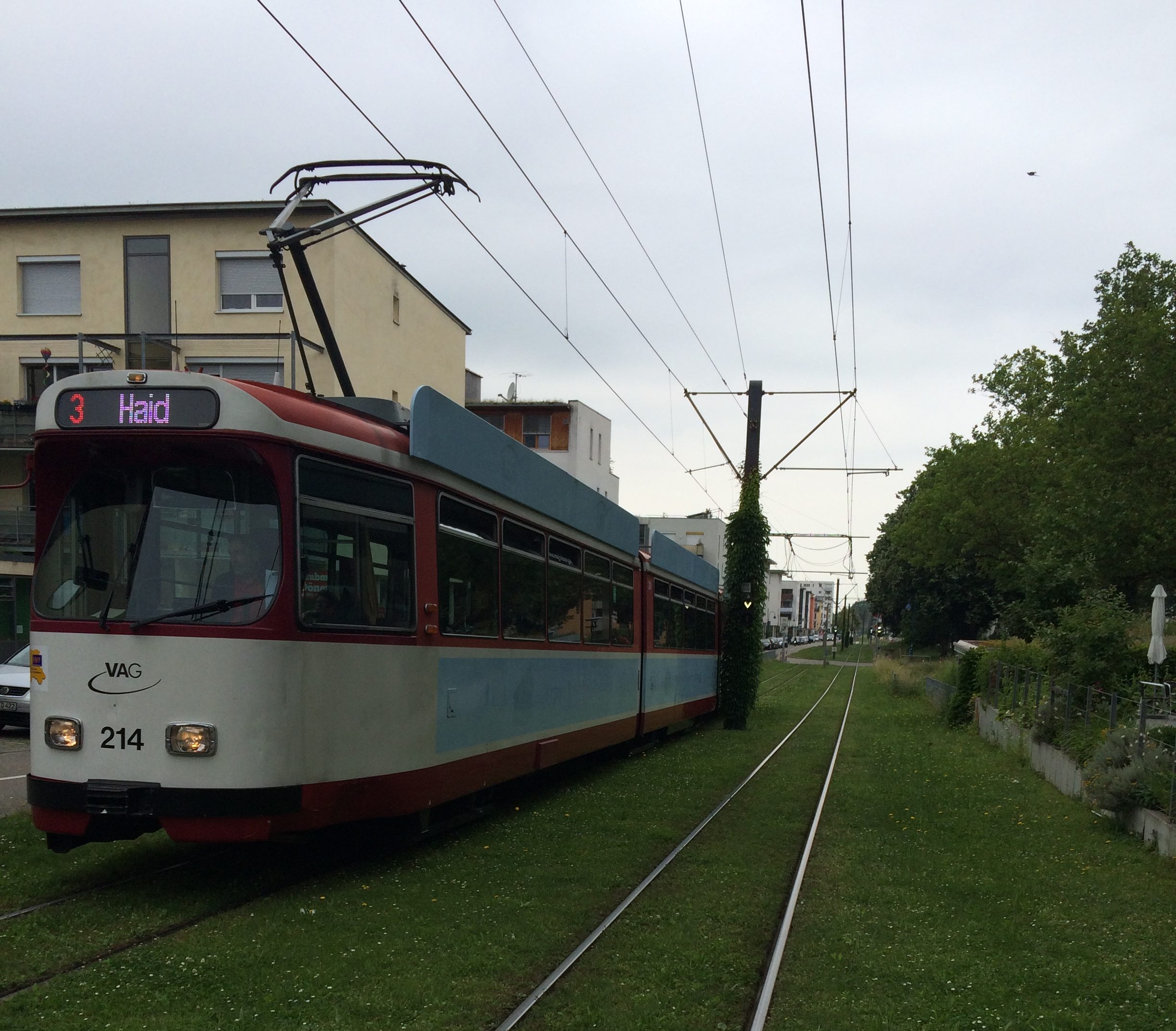
“In Copenhagen, you walk down the waterfront and jump in the water, it’s almost like going to the beach,” said Salvesen. “It used to be an industrial harbor and 25 years ago, the city was on the verge of bankruptcy, auto-choked, polluted, and declining and they made a conscious decision to turn things around and make it more livable, so they banned cars in certain areas. They provided greater access to the water. They cleaned up the harbor so that now you can swim in it.”
Participants in the summer research seminar came from various majors across campus, including political science, public policy, environmental studies, environmental science, chemistry, business, the arts, and media and journalism.
“They are the generation that is going to be responsible for designing or redesigning the places that we live. Now that they’ve seen what is possible, they can try to make that happen here,” Salvesen said.
Story by Institute for the Environment


